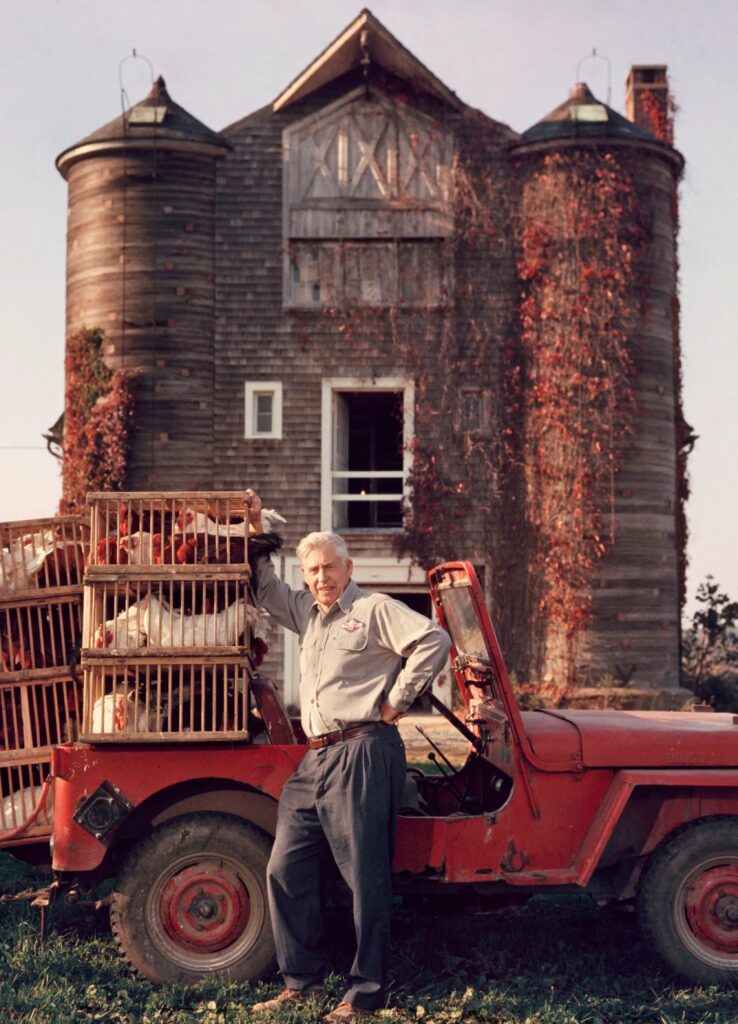
The Wallace Center’s name represents more than our origin story. Our name is rooted in the ideals of a man whose values of equity and justice we emulate through our work today. Henry Agard Wallace (1888-1965) served as the 11th U.S. Secretary of Agriculture and 33rd U.S. Vice President under Franklin D. Roosevelt. Wallace was a staunch advocate for progressive democracy and systemic change in the U.S., evidenced by his work on New Deal agricultural reforms as Secretary of Agriculture and his opposition to militaristic imperialism as Vice President.

Raised on his family’s farm in Adair County, Ia., Wallace was born into a socially progressive agriculture family. His family established Wallaces’ Farmer (an agricultural newspaper whose motto was “Good Farming, Clear Thinking, Right Living”), that went on to make the Wallace family politically influential. His grandfather served as editor of the paper and his father, Henry Cantwell Wallace, was a dairy professor at Iowa State Agriculture College. The elder Wallace befriended his student, a then-unknown George Washington Carver, the first Black student at the college. Carver taught the younger Wallace about plant breeding and botany, inspiring within Wallace a deeper interest in agriculture.
After completing his studies in agriculture at Iowa State, Wallace became editor of Wallaces’ Farmer, serving as editor until his appointment as Secretary of Agriculture by Franklin D. Roosevelt in 1933. Serving in this role during the first two terms of the New Deal, Wallace played an instrumental role in combatting the economic and agricultural crises during the Great Depression. He co-created the Agricultural Adjustment Act of 1933—a cornerstone of the nation’s first Farm Bill—which existed to prevent crop overproduction and stabilize prices for farmers. He also played a role in food distribution efforts, food assistance programs such as school lunch and school milk programs, and the early food stamp programs, now known as SNAP.
Wallace was elected as Vice President under Roosevelt from 1941-1945 where he advocated for the common man, and touted “Peace, Prosperity, and Equality” as his motto. In 1948, Wallace ran for President under the Progressive Party, calling for national health insurance and equal pay for equal work. After his loss, he retired to his farm in New York, where he farmed, wrote, and held speaking engagements until his death from Lou Gehrig’s disease in 1965.
We’re proud to carry Henry A. Wallace’s name as we continue forward in this work.